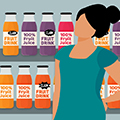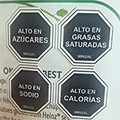
A new global review of school food policies published in Advances in Nutrition found that only 16% of countries worldwide have national policies restricting food marketing in schools, and only 25% have national policies restricting in-school sales of foods high in nutrients or ingredients of concern outside school meal programs. A mere 12% of countries […]







